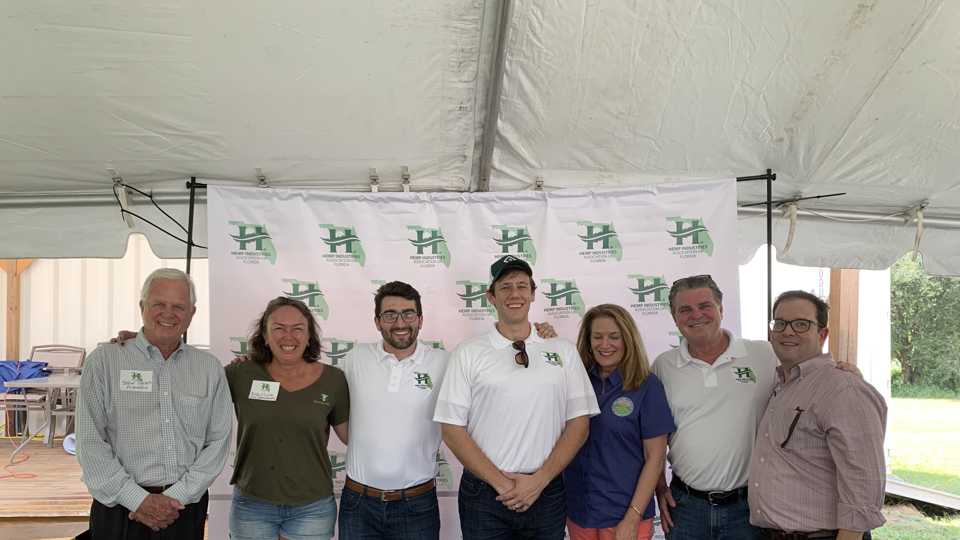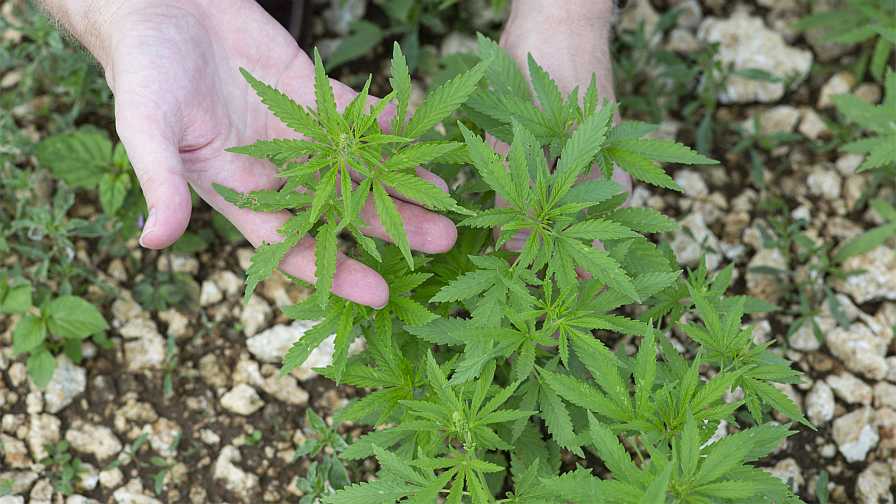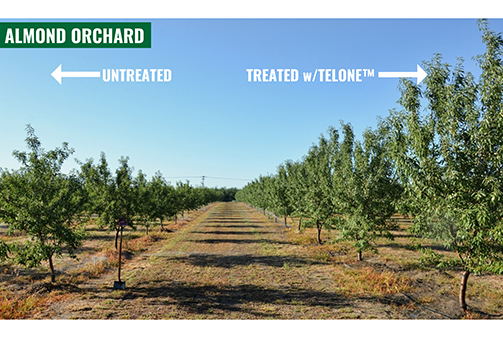Hemp Road Tour Drums up Growing Interest in Florida
To say interest is high among Florida growers regarding industrial hemp would be an understatement. That was evident in the turnout at a recent Industrial Hemp Road Tour stop in Clermont. The event, hosted by the Hemp Industries Association of Florida, was one of five road tour stops recently held across the state.
Permitting by Year’s End
When Gov. DeSantis signed the hemp legislation into law this summer, the Florida Department of Agriculture and Consumer Services (FDACS) began the work of developing the rules and regulations that will govern the state’s hemp program.
Helen Miller, FDACS Director of External Affairs for Central Florida, told attendees the department hopes to have rules and regulations in place by the end of the year with permitting beginning shortly thereafter. There will be no caps on the number of permits approved. Applicants must undergo a background check and not have been charged with a narcotics felony in the past 10 years. The permit cost for growing industrial hemp will be $650.
“The types of permits will vary depending on what you are going to do,” she noted. “Some people are just going to grow. Some are going to process. Some people are going to be wholesaling or retailing CBD (cannabidiol). There will be different permits for all these things.”

The people in the know were on hand to give updates the progress bringing industrial hemp to Florida during the Hemp Road tour stop in Clermont. Left to right: Stewart Baker, Managing Director, Florida Capital Bank; Ashley Leibe, President, Eco Canna Health; Ray Mazzie, Executive Director, Hemp Industries Association of Florida (HIAF); David Hasenauer, Chairman of the Board, HIAF; Helen Miller, Central Florida Regional Director of External Affairs, Florida Department of Agriculture and Consumer Services; Roger Brown, President, ACS Laboratory; and Tim Stanfield, Greenberg Traurig.
Photo by Frank Giles
Avoiding the Hot Crop
Roger Brown addressed the issue of testing of the hemp crop and its various products. Brown is a board member of the Hemp Industries Association and is the owner of the Tampa-based ACS Laboratory, which is the largest hemp testing facility in the Southeast U.S.
Brown noted that specific requirements on testing is still being hammered out in the writing of rules and regulations. But, he added, testing is going to be a legally required for growers, and it will be important how it is approached.
If you are a grower interested in the higher-value CBD market, the most important figure you will need to know is your crop cannot exceed 0.3% tetrahydrocannabinol (THC). If a test comes back higher than that, it will be considered a “hot” crop. If a second sample confirms the first test, the crop must be destroyed and only used for lessor value markets.
“When they make you destroy the crop, you will have to remove all the flowers and all the leaves,” Brown said. “Then you can only sell it for bare stock fiber, whole hemp seed, hemp seed protein powder, or hemp seed oil. That is not as profitable as selling the CBD product.”
How you define the “plot” where you are growing hemp also will be important. If you choose to define larger-scale plots, you can save money because you will be taking fewer tests in the field. However, you also put yourself at greater risks if a test comes back hot.
“Say you have planted 100 acres and you call that one plot,” Brown said. “There will be one sample taken in that plot. If that sample tests hot twice, they are going to make you destroy that entire 100 acres. If you had broken that 100 acres into multiple plots, there is chance not all the samples would have tested hot. In those plots, you would still have access to the higher value markets. You need to be thoughtful and cautious about how you define your plots.”
Brown added that people processing the hemp for CDB will be subject to testing and other laws that food and beverage vendors must comply with. “For instance, if you are making a CBD body cream for aches and pains, then you would have to comply with the Florida Cosmetic and Drug Act. It sounds onerous, but it is really not that difficult.”
Sorting out Varieties
How productive hemp is, as well as its THC levels, will be heavily dependent of variety selection. That presents a challenge because there are many varieties and many unknowns about their performance in Florida.
That is where the UF/IFAS Industrial Hemp Pilot Project comes into play. The project has identified three locations in the state to test and identify varieties and production practices suited for Florida. One location will be dedicated to investigating the invasive weed potential of hemp in this state.
If you are interested in learning more about the project, visit its website or contact Project Coordinator Zachary Brym at [email protected].

Photo by Tyler Jones, UF/IFAS
Getting to Know Hemp
What is hemp?
Hemp is a term used to describe varieties of the plant Cannabis sativa L., which contain 0.3% or less of THC content on a dry-weight basis. The THC content is the main distinction between hemp and medical marijuana. Plants higher in THC cause the “high” associated with marijuana. Generally, hemp is divided into two categories: low-resin, industrial hemp plants and high-resin, CDB-rich hemp plants.
What is hemp used for?
Hemp is a highly versatile plant with thousands of uses. The entire plant — root, seed, stalk, flower, and leaves — can be harvested for industrial purposes.
What are some common uses of hemp
- Paper
- Textiles
- Cosmetics and body care
- CDB therapeutic products
- Food and nutritional goods
What is hemp-derived CBD?
Cannabidiol (CBD) is a non-psychoactive chemical compound found in hemp and other cannabis varieties. Studies have shown it to be an effective treatment for inflammation and stress. CBD is extracted from hemp plant resin and concentrated into the form of capsules, tinctures, lotions, and infused food and drink.
What do I need to know about CDB products?
Right now, the CBD products being sold in Florida are unregulated, untested, and without standards on what consumers are putting into their bodies. There have been reports of falsely advertised products containing harmful additives and little or no CBD. Neither consumers nor FDACS can ensure these products are completely safe for human or animal consumption. Once the state begins permitting hemp, FDACS will begin testing CBD products for consumer safety. If consumers suspect any products are unsafe or not as advertised, they should file a consumer complaint at FloridaConsumerHelp.com or 1-800-HELP-FLA.
Q&A Source: FDACS









